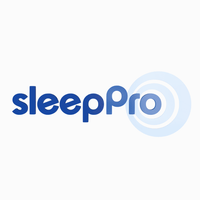There are always lots of questions asked of us by those who are considering using an oral appliance for the first time and therefore we’ve tried to answer as many as possible of those basic questions in this short article.

What exactly is an oral appliance?
Oral appliances are one of the key options that you can use to treat mild or moderate obstructive sleep apnea, as well as snoring. They are sometimes alternatively called Mandibular Advancement Splints (MAS), Mandibular Advancement Devices (MAD), or Mandibular Repositioning Appliances (MRA). They look a bit like a mouth guard that you might wear if you were playing a contact sport and they are worn at night while sleeping.
Do I simply snore or could it be sleep apnoea?
Snoring is very common and happens when your throat vibrates during sleep due to it having narrowed or even closed, which can happen for a number of different reasons. It is usually held open by a couple of small muscles and these may have relaxed causing it to narrow. When you breathe in it will therefore vibrate and make the sound we all know so well.
It’s very common for people to snore and can happen for both sexes and all age groups, but the age group at most risk are those of middle age and upwards. Men are a little more prone to snore than women at over 40% of their total but the number of women almost matches that figure nowadays.
Obstructive sleep apnea (OSA) is a condition when the airway at the back of the throat is repeatedly blocked, partly or completely, during sleep. Although you may not realise, this stoppage in your breathing causes you to wake briefly and restart breathing once more. Your partner will observe this happening but not yourself and it can occur many times each hour. Snoring, obesity, and sleepiness in the daytime may suggest that a person has sleep apnoea and treatment for this is vital. If you need more advice you should contact your GP or local NHS Sleep Centre who will advise you.
How do oral appliances work?
The simplest way to describe it is that they push your lower jaw forwards. Your airway will open up more and there will be less of a risk that it will vibrate or be obstructed and cause you to snore.
As with all treatments, some people respond better than others but generally most people find them to be a satisfactory way to stop snoring. In the case of OSA, the oral appliance will work best if you have mild to moderate sleep apnea, if your sleep apnoea is a lot better when you lie on your side than when you lie on your back and if you are not overweight. If you have central sleep apnoea, which is much less common than obstructive sleep apnoea, then oral appliances will probably not help.
Severe or chronic cases of OSA will require treatment by CPAP which will stop sleep apnoea straight away in almost all people who use it but sometimes people find it difficult to wear the regulatory breathing mask which is attached to an oxygen pump and often stop their treatment. Rather than do nothing they are advised to use an oral appliance that will usually improve their sleep apnoea, but it may not completely stop it.
Are there any side effects?
The two main types are generally trouble free but any small problems can usually be quickly overcome. Type A can be used straight from the box and after immersion in hot water will shape to fit your dental profile. It can be re-modified as required over time until the fit is one that you find easiest and most comfortable to wear.
Type B is custom-fitted to your dental profile from a mold that you take and send back to the Dental laboratory that supplied it.
If the mouthpiece fits correctly correctly, it should be comfortable most of the time but because it pushes your jaw forward, some people may feel some discomfort initially, although it tends to get better with prolonged use. Mostly, any discomfort is in the joint at the back of your jaw, just in front of the ear. This should soon go away when you take the appliance out in the morning. Other people find that it causes saliva to build up in the mouth, or makes the teeth feel tender but these symptoms settle quickly with continuing use.
A 98% success rate and a 30-Day Money Back Guarantee on all our SleepPro Starter Appliances hopefully speaks for itself.


